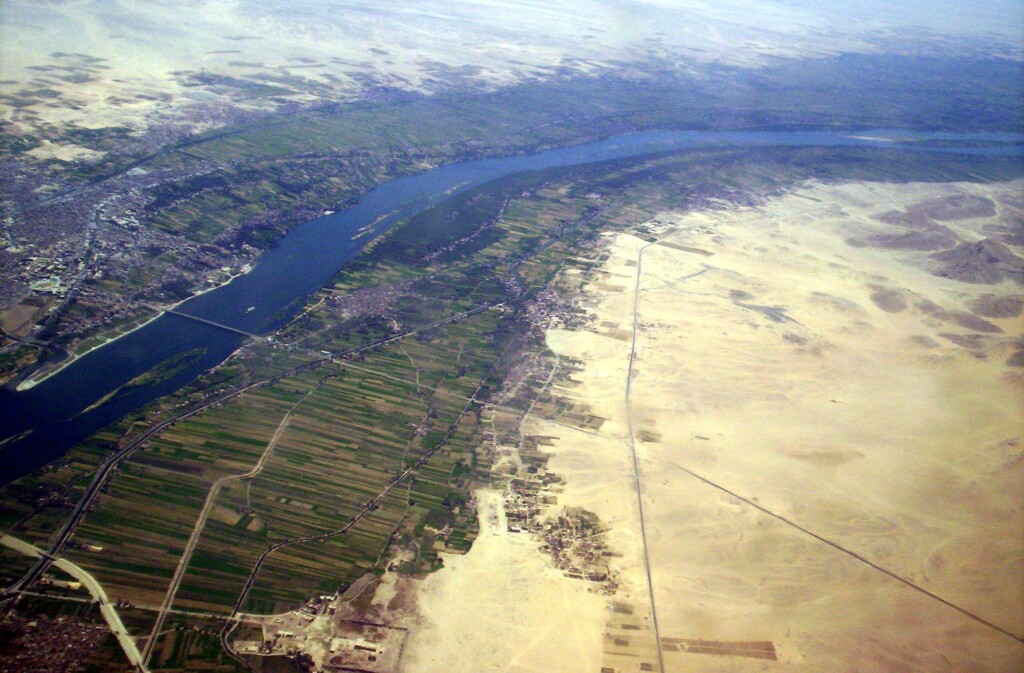‘Rapid negotiations’ over GERD resume between Sudan, Egypt and Ethiopia

Ethiopia's move to fill the GERD reservoir could reduce Nile flows to fertile land such as Luxor, Egypt, by as much as 25 per cent (Photo: Bionet)
Tripartite negotiations between Sudan, Egypt, and Ethiopia on an agreement on the operation of the Grand Ethiopian Renaissance Dam (GERD) resumed in the Ethiopian capital, Addis Ababa, yesterday morning.
This fourth round of negotiations follows a joint statement made on July 13 by Egyptian President Abdel Fattah El Sisi and Ethiopian Prime Minister Abiy Ahmed. They announced the start of “rapid negotiations” to reach a final agreement on the dam’s filling and operation guidelines.
The meeting is a continuation of previous rounds of negotiations and part of ongoing efforts to reach a consensus among the three countries. A one-day meeting preceded this round.
Following a previous negotiation session on September 23, Sudan’s acting Minister of Water Resources and Irrigation, Dawelbeit Abdelrahman called on countries not to take hardline positions, reach compromise solutions, and deal with the GERD as “a catalyst for cooperation”.
Ahmed El Mufti, a water expert and former member of the negotiating delegation in the GERD negotiations, questioned the positive results of the current GERD meetings held in Ethiopia at the time.
“Meetings on the Renaissance Dam have been held for 10 years without achieving anything for Sudan and Egypt, while Ethiopia has fully achieved its demands,” he told Radio Dabanga, “Ethiopia has completed the fourth filling of the dam, where 40 billion cubic meters have been stored, despite a decision by the African Union and the Security Council to stop activities.”
Addis Ababa announced on September 10 that the fourth filling of the GERD was complete. The announcement was met with a chorus of condemnation from both Sudan and Egypt, who have considered the dam a bone of diplomatic contention from the outset.
In March 2011, Ethiopia announced its plans to build a large dam at the Blue Nile as a jointly funded, owned, and operated project between the three countries. Egypt and Sudan vehemently opposed the dam and ignored the proposal. They claimed adverse effects on their Nile water rights and interests. Khartoum later softened its position.
Since colonial times, Egypt has held the major ownership of the water from the Nile River. It managed to prevent Ethiopia from constructing its Grand Renaissance Dam until 2011, after the people in southern Sudan opted for secession from Khartoum in January. The legality of the older agreements on the Nile waters was to be rediscussed, following the secession of South Sudan, that took place in July that year.











 and then
and then